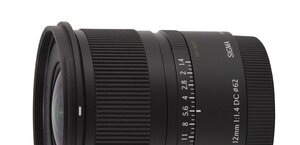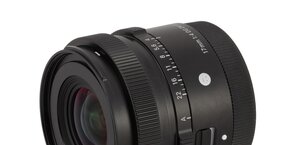Sigma A 40 mm f/1.4 DG HSM
8. Vignetting
| Canon 50D, f/1.4 | Canon 50D, f/2.0 |

|

|
There are no reasons to get worried. At the maximum relative aperture the vignetting is 25% (−0.84 EV); by f/2.0 and f/2.8 it decreases to an imperceptible value of, respectively, 9% (−0.29 EV) and 6% (−0.19 EV).
Please Support UsIf you enjoy our reviews and articles, and you want us to continue our work please, support our website by donating through PayPal. The funds are going to be used for paying our editorial team, renting servers, and equipping our testing studio; only that way we will be able to continue providing you interesting content for free. |
- - - - - - - - - - - - - - - - - - - - - - - - - - - - - - - - - - - - - - - - - - - - - - - -
Now let’s check how the situation changes when you pass to full frame – below we present images from the Canon EOS 5D Mark III.
| Canon 5D III, f/1.4 | Canon 5D III, f/2.0 |

|

|
| Canon 5D III, f/2.8 | Canon 5D III, f/4.0 |

|

|
Here the vignetting is much more pronounced. At the maximum relative aperture it reaches 59% (−2.56 EV) and, taking huge physical dimensions of the lens into account, it is a weak result. It is true that the Sigma A 1.4/35 fared even weaker in this category but the A 1.4/50 model was better. Of course you have to remember that the size of the lens is just one of vignetting factors; you can control that aberration better in bigger lenses but if the instrument is also optically complex the task might be not so easy after all. You have to take into account light absorption effects in big blocks of glass and a weaker efficiency of anti reflection coatings when the light falls at more acute angles. When there is a lot of air-to-glass surfaces, and such is the situation of the Sigma A 1.4/40, the losses of light in the corners might be significant.
Fortunately vignetting decreases swiftly with the stopping down. By f/2.0 we got a result of 35% (−1.26 EV), and by f/2.8 it amounted to 17% (−0.53 EV). From the f/4.0 aperture upwards the vignetting disappeared practically completely, being officially 11% (−0.34 EV).
| Canon 5D III, JPEG, f/1.4 |
 |






